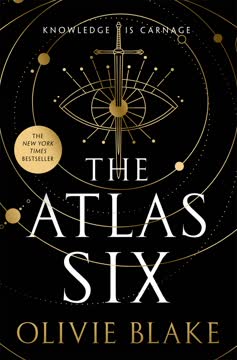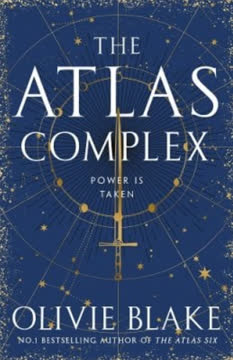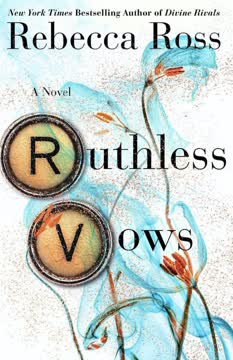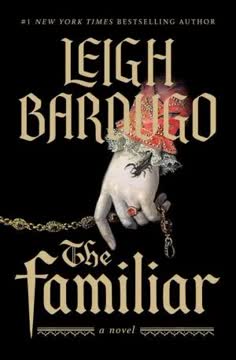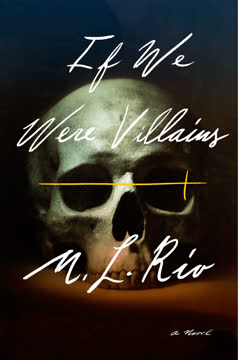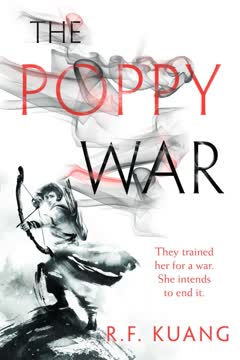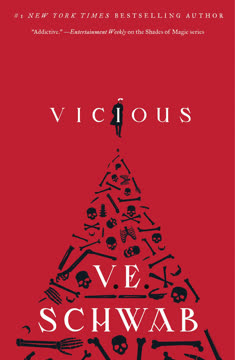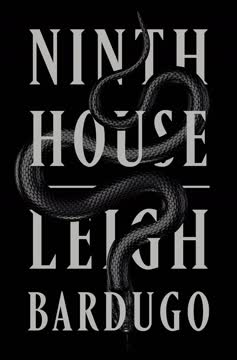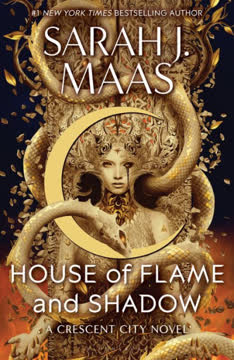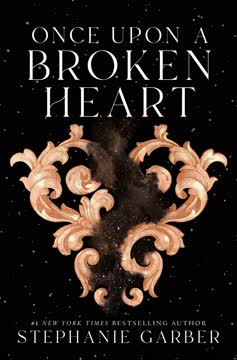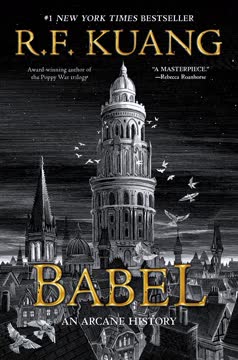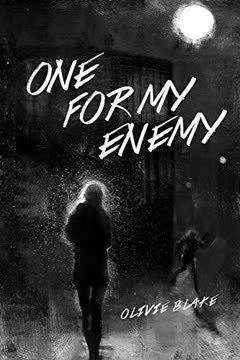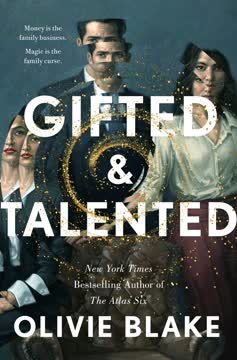Plot Summary
The Library's Secret Legacy
Long ago, the legendary Library of Alexandria was not destroyed by accident, but by design—its caretakers chose to hide its vast magical and scientific knowledge from the world's despots. Over centuries, the Society that grew from its ashes became the secret stewards of all human wisdom, selecting only the rarest magical minds to join their ranks. Every decade, six are chosen for initiation, but only five survive. The promise is power, prestige, and knowledge beyond imagination, but the price is steep: the loss of one among them, and the transformation of all. The Society's legacy is one of secrecy, sacrifice, and the relentless pursuit of greatness, where knowledge is both a gift and a weapon.
Six Chosen, One Lost
Six extraordinary medeians—Libby, Nico, Reina, Tristan, Callum, and Parisa—are recruited from around the world by Atlas Blakely, the enigmatic Caretaker. Each is rare in their magical specialty: physicists who bend reality, a naturalist who commands life, an illusionist who sees through lies, an empath who manipulates intent, and a telepath who reads minds. They are told only five will be initiated, and the sixth will be eliminated. The offer is irresistible, the competition fierce. Each candidate is drawn by ambition, curiosity, or desperation, and all are warned: the Society's doors open to those who can bear the weight of its secrets—and survive the cost.
Rivalries and Recruitment
Libby and Nico's rivalry, forged in years of academic competition, is reignited as they are both recruited. Each candidate is approached in a way that exposes their deepest desires and insecurities. Reina, burdened by her power, is lured by the promise of knowledge. Tristan, haunted by his past, is tempted by the chance to redefine himself. Callum, the manipulative empath, and Parisa, the seductive telepath, see the Society as a stage for their talents. Atlas's recruitment is both a test and a seduction, forcing each to confront what they are willing to risk for a place among the world's magical elite.
The Initiation Offer
The six are brought together in the Society's London house, a place of opulence and danger. They are told they will spend a year learning, researching, and defending the archives. At the end, only five will be initiated; the sixth will be eliminated by the others' choice. The rules are vague, the stakes are mortal. The candidates must collaborate to protect the Society from external threats, but also compete, knowing that alliances may be temporary and trust is a luxury. The promise of initiation is intoxicating, but the shadow of elimination looms over every interaction.
Assembling the Unmatched
The six begin to reveal their specialties and test each other's limits. Libby and Nico's physical magic is unmatched, but their rivalry is both a strength and a weakness. Reina's naturalism is a wellspring of power, but also a burden. Tristan's ability to see through illusions makes him both valuable and isolated. Callum's manipulation of intent unsettles the group, while Parisa's telepathy makes her both feared and indispensable. As they navigate the house's magical defenses and the first collaborative challenges, alliances form along lines of trust, ambition, and necessity, but suspicion simmers beneath the surface.
The First Test: Survival
The Society's tradition of "leaking" the new initiates' arrival results in a violent assault on the house by rival magical organizations. The six must defend themselves and the archives, facing both mortal and magical threats. The ordeal forces them to work together, revealing strengths and vulnerabilities. Nico and Libby's combined power is explosive; Reina's control over life is crucial; Tristan's perception is the key to seeing through illusions; Callum and Parisa's mental abilities turn the tide. The attack is both a real threat and a test, and its aftermath cements the reality that only those who can survive—together—will have a chance at initiation.
Alliances and Animosities
In the wake of the attack, the group's dynamics shift. Libby and Nico form a pragmatic alliance, recognizing their mutual dependence. Reina remains aloof but indispensable. Tristan and Parisa's connection deepens, complicated by attraction and mutual suspicion. Callum's manipulations sow discord, and Parisa's telepathy makes her both confidante and threat. The candidates begin to strategize, weighing who is most expendable and who is too dangerous to keep. The pressure of competition intensifies, and the line between ally and enemy blurs as each candidate contemplates what they are willing to do to survive.
The House of Power
The initiates settle into the rhythms of Society life: research, magical experimentation, and constant surveillance. They unlock new levels of the archives, each discovery more dangerous than the last. Libby and Nico push the boundaries of physical magic, creating wormholes and manipulating space. Reina's power is revealed as a source of energy for the group. Tristan's unique sight becomes essential for navigating magical traps. Callum and Parisa's mental games escalate, each probing the other's limits. The house itself becomes a crucible, forging and fracturing relationships as the initiates edge closer to the moment of elimination.
Knowledge, Cost, and Sacrifice
The Society's lessons grow darker, focusing on the cost of magic and the necessity of sacrifice. The initiates learn that every advancement comes at a price—sometimes blood, sometimes sanity, always something irretrievable. The archives reveal secrets of immortality, death, and the manipulation of fate. The candidates are forced to confront their own motivations: Libby's hunger for validation, Nico's need to protect, Reina's desire for autonomy, Tristan's search for meaning, Callum's craving for control, and Parisa's pursuit of power. The realization dawns that the elimination is not just a test, but a ritual with ancient, binding consequences.
The Battle for Belonging
As the year progresses, the initiates' relationships become more tangled. Libby's breakup with Ezra, her boyfriend, leaves her vulnerable but also more determined. Parisa and Tristan's intimacy is both a comfort and a weapon. Callum's manipulations reach a breaking point, and his true nature is revealed as both monstrous and pitiable. The group is visited by rival organizations, each offering temptations and threats. The pressure to choose who will be eliminated mounts, and the initiates are forced to confront the reality that belonging to the Society means being complicit in its darkest traditions.
The Unraveling of Truth
The truth about the elimination is finally revealed: it is not a metaphor, but a literal death. The initiates must choose one among them to die, and the decision is both collective and personal. Parisa manipulates the group toward targeting Callum, but Libby insists that the sacrifice must be made by someone who truly cares, or the magic will corrupt. Tristan is chosen as the executioner, but the plan goes awry. In the chaos, Libby is abducted—her disappearance staged as a death, but her fate uncertain. The group is left fractured, their trust in each other and the Society shattered.
The Price of Magic
With Libby gone, the remaining five are initiated, but the victory is hollow. The Society's leaders offer no answers, only the next stage of research: the study of life and death. The group is haunted by Libby's absence, each member grappling with guilt, anger, and the knowledge that they are now bound to the Society—and to each other—by blood and betrayal. Dalton, the previous initiate, reveals that the magic binding the Society is ancient and unyielding, and that the cost of power is always paid in suffering. The initiates are left to wonder if the price was worth it, and what they have become.
The Game of Elimination
The initiates' final test is not just magical, but moral. They must decide who among them is most expendable, and the process is as much about intent as action. Parisa and Callum's battle of minds exposes the group's deepest wounds. Tristan's struggle with his own darkness nearly destroys him. Reina and Nico's alliance is tested by the limits of their power. The group's decision is both collective and coerced, and the ritual of elimination is completed—but not as the Society intended. The survivors are left changed, their bonds forged in both trust and treachery.
The Disappearance
Libby's disappearance is revealed to be the work of Ezra, her ex-boyfriend, who is himself a rare magical traveler capable of manipulating time and space. Acting on behalf of a coalition of the Society's enemies, Ezra abducts Libby to prevent Atlas Blakely's plan from coming to fruition. The remaining initiates are left to grapple with the loss, unsure if Libby is dead or alive, and aware that the Society's enemies are closing in. The balance of power has shifted, and the survivors must decide whether to uphold the Society's traditions or break them.
The Fractured Five
With Libby gone, the five remaining initiates are offered full membership. Nico demands that the group swear to help him find Libby, and the others agree—some out of loyalty, others out of self-preservation. The initiation ritual is completed, binding them to the Society and to each other. The group is united by loss, but also by a new sense of purpose: to find Libby, to uncover the Society's true intentions, and to decide for themselves what kind of world they want to build. The old order is dying, and a new one is being born.
The New Oath
The five initiates take their oath, but the meaning of the Society has changed. No longer content to be pawns in an ancient game, they resolve to use their power to shape the future. Dalton, the previous initiate, warns them that too much power is a dangerous thing, but the group is undeterred. The Society's enemies gather, and Atlas Blakely's true plan—to use the initiates to remake the world—is revealed. The stage is set for a new conflict, one that will determine not just the fate of the Society, but of the world itself.
The Looming Endgame
As the dust settles, the five initiates stand on the threshold of a new era. The Society's traditions have been upended, its secrets exposed, and its enemies emboldened. Libby's fate remains uncertain, and the group's unity is fragile. The promise of knowledge and power is now a burden, and the initiates must decide whether to perpetuate the cycle of sacrifice or to break it. The end of one story is the beginning of another, and the world waits to see what the new gods will do with the power they have claimed.
Characters
Libby Rhodes
Libby is a fiercely intelligent physicist whose magic manipulates physical forces—gravity, heat, and molecular structure. Her rivalry with Nico is both her greatest motivator and deepest insecurity, pushing her to excel but also to doubt her worth. Libby's need for validation is rooted in a childhood marked by loss and a sense of inadequacy, especially after her sister's death. She is anxious, rule-bound, and desperate to prove herself, but her moral compass is strong. Libby's journey is one of self-acceptance, learning to wield her power without apology, and ultimately sacrificing her safety for the greater good. Her disappearance is the emotional fulcrum of the group, galvanizing the others to action and exposing the true cost of ambition.
Nicolás Ferrer de Varona (Nico)
Nico is Libby's equal in physical magic, able to manipulate reality with ease and confidence. He is charming, impulsive, and often reckless, masking deep loyalty and vulnerability beneath bravado. Nico's background is privileged, but he is haunted by the need to protect those he loves, especially his best friend Gideon, a magical hybrid. His rivalry with Libby is both antagonistic and symbiotic, driving them both to new heights. Nico's greatest fear is powerlessness, and his arc is defined by his willingness to do whatever it takes to save his friends—even if it means breaking the rules or making impossible choices. His demand that the group unite to find Libby cements his role as the group's emotional center.
Reina Mori
Reina is a naturalist whose magic is a wellspring of life, but she experiences it as a burden rather than a gift. Raised in privilege but isolated by her power, Reina is introspective, blunt, and often aloof. She is more comfortable with plants than people, and her detachment masks a deep desire for autonomy and understanding. Reina's journey is one of embracing her role as both a source of power and a catalyst for change. She is pragmatic, unflinching in the face of sacrifice, and ultimately chooses to align herself with those who value her for what she can do, not just what she is. Her alliance with Nico and her role in the group's survival are pivotal.
Tristan Caine
Tristan's magic allows him to see through illusions and, eventually, to perceive the true nature of reality—including time itself. Born into poverty and violence, Tristan is cynical, guarded, and plagued by self-doubt. He is drawn to both Parisa and Callum, seeking connection but fearing betrayal. Tristan's greatest struggle is with his own sense of worth and agency; he is often manipulated by others, but ultimately must decide whether to act or be acted upon. His role as the group's moral barometer is complicated by his willingness to do what is necessary, even when it means sacrificing his own soul. Tristan's arc is one of painful self-discovery and the acceptance of his own power.
Callum Nova
Callum is an empath who can manipulate intent and emotion, making him both invaluable and deeply dangerous. He is privileged, bored, and often amoral, viewing people as playthings and relationships as games. Callum's ability to break others is matched only by his own emptiness; he feels everything and nothing, craving sensation but unable to form genuine connections. His rivalry with Parisa is a battle of wills, each trying to outmaneuver the other. Callum's ultimate fate is a testament to the dangers of unchecked power and the corrosive effects of isolation. He is both villain and victim, a mirror for the group's darkest impulses.
Parisa Kamali
Parisa is a telepath whose beauty and intelligence make her both irresistible and feared. She uses her powers to seduce, control, and survive, but beneath her confidence lies a history of trauma and a hunger for belonging. Parisa is both ally and adversary, forming strategic relationships with Tristan and Dalton while plotting her own ascent. Her rivalry with Callum is a duel of minds, and her willingness to do whatever it takes to win makes her both formidable and dangerous. Parisa's arc is one of self-realization, as she confronts the limits of her power and the cost of her ambition. She is the group's most enigmatic member, always several moves ahead.
Atlas Blakely
Atlas is the Society's Caretaker, responsible for recruiting and guiding the initiates. He is charming, mysterious, and deeply strategic, always several steps ahead. Atlas's true motives are hidden, but it becomes clear that he is orchestrating a plan to use the initiates' power to reshape the world. He is both mentor and manipulator, offering wisdom while withholding crucial truths. Atlas's relationship with Dalton is complex, marked by both loyalty and exploitation. He embodies the Society's paradox: the pursuit of knowledge at any cost, and the willingness to sacrifice anything—and anyone—for the greater good.
Dalton Ellery
Dalton is the previous initiate, now serving as the group's mentor and the Society's resident animator. He is meticulous, reserved, and burdened by guilt over his own initiation, which required him to kill a fellow candidate. Dalton's power to animate is both a gift and a curse, and he is haunted by the knowledge that only he could have created the animation that replaced Libby. His relationship with Parisa is intimate but fraught, as he struggles to reconcile his role as both guide and gatekeeper. Dalton's arc is one of atonement, seeking redemption for the sins of the Society and his own complicity.
Ezra Fowler
Ezra is Libby's ex-boyfriend and a rare magical traveler, capable of manipulating time and space. Initially unremarkable, Ezra is revealed to be a key player in the Society's endgame, acting on behalf of its enemies to abduct Libby and disrupt Atlas's plan. Ezra's motivations are complex: loyalty to Atlas, resentment over his own erasure, and a desire to prevent the Society from remaking the world. His actions are both a betrayal and a desperate attempt to avert catastrophe. Ezra embodies the dangers of power without belonging, and his choices set the stage for the next conflict.
Gideon Drake
Gideon is Nico's best friend, a magical hybrid with the ability to travel through dreams and subconscious realms. He is gentle, self-effacing, and fiercely loyal, often serving as Nico's anchor and conscience. Gideon's power is both rare and dangerous, making him a target for exploitation. His relationship with Nico is one of mutual dependence and deep affection, and his willingness to risk everything for his friend is a quiet but powerful force in the story. Gideon represents the possibility of connection and redemption, even in a world defined by ambition and betrayal.
Plot Devices
The Initiation Ritual
The Society's initiation is both a competition and a ritual, designed to select the most powerful and adaptable candidates while binding them to the Society's cause. The process is shrouded in secrecy, with the true cost—one candidate's death—revealed only when it is too late to turn back. The ritual serves as both a test of character and a mechanism for magical binding, ensuring that only those willing to sacrifice are granted access to the Society's deepest secrets. The elimination is not just a plot device, but a crucible that forges and fractures the group, exposing their true natures and setting the stage for future conflict.
Unreliable Narration and Shifting Perspectives
The story unfolds through the eyes of all six initiates, as well as key secondary characters. Each perspective is colored by personal bias, trauma, and ambition, creating a tapestry of conflicting truths and unreliable narration. The shifting viewpoints allow for deep psychological exploration, revealing the connections and tensions between characters. Secrets are kept from both the reader and the other characters, heightening suspense and complicating alliances. The use of internal monologue, telepathy, and manipulation blurs the line between thought and reality, making every interaction a potential battleground.
Magical Realism and Scientific Inquiry
The Society's research is at the intersection of magic and science, with the initiates tasked to explore the limits of reality itself. The creation of wormholes, manipulation of time, and the study of life and death are all treated as both magical and scientific endeavors. This blending of disciplines allows for both wonder and danger, as the initiates' experiments have consequences that ripple beyond the house. The archives themselves are a living entity, granting or denying access based on intent and worthiness. The pursuit of knowledge is both a source of power and a path to destruction.
Foreshadowing and Symbolism
The narrative is rich with foreshadowing: the cyclical nature of the Society, the repeated motif of mirrors and reflections, and the constant reminder that knowledge comes at a price. The rivalry between Libby and Nico, the battle of minds between Parisa and Callum, and the shifting alliances all serve as microcosms of the larger struggle for power. The disappearance of Libby and the group's fractured unity symbolize the dangers of unchecked ambition and the inevitability of sacrifice. The story's end is both a conclusion and a beginning, foreshadowing the next cycle of conflict and the possibility of a world remade.
Analysis
Olivie Blake's novel reimagines the secret-society trope as a crucible for psychological and moral transformation, where the pursuit of greatness demands not just talent, but sacrifice. The book interrogates the ethics of elitism, the dangers of unchecked curiosity, and the ways in which trauma and desire shape identity. Each character is both archetype and subversion: the perfectionist, the prodigy, the manipulator, the survivor, the seductress, the outcast. Their interactions are a study in trust, betrayal, and the impossibility of true objectivity. The Society itself is a metaphor for all institutions that promise transcendence at the cost of humanity, and the initiation ritual is a stark reminder that every system built on exclusion and secrecy is ultimately sustained by violence. The novel's ending—fractured, unresolved, and brimming with potential—invites readers to question not just what the characters will do with their power, but what we, as a society, are willing to sacrifice for the promise of a better world.
Last updated:
Review Summary
The Atlas Six received mixed reviews. Many readers praised its dark academia vibes, complex characters, and intriguing magic system. They found the philosophical discussions and character dynamics compelling. However, others criticized the slow pacing, lack of plot, and pretentious writing style. Some felt the characters were unlikeable and the world-building underdeveloped. Despite its flaws, the book garnered a dedicated fanbase who eagerly anticipated the sequel. Overall, it seems to be a polarizing read that resonates strongly with some readers while leaving others frustrated.
The Atlas Series
Similar Books
Download PDF
Download EPUB
.epub digital book format is ideal for reading ebooks on phones, tablets, and e-readers.
